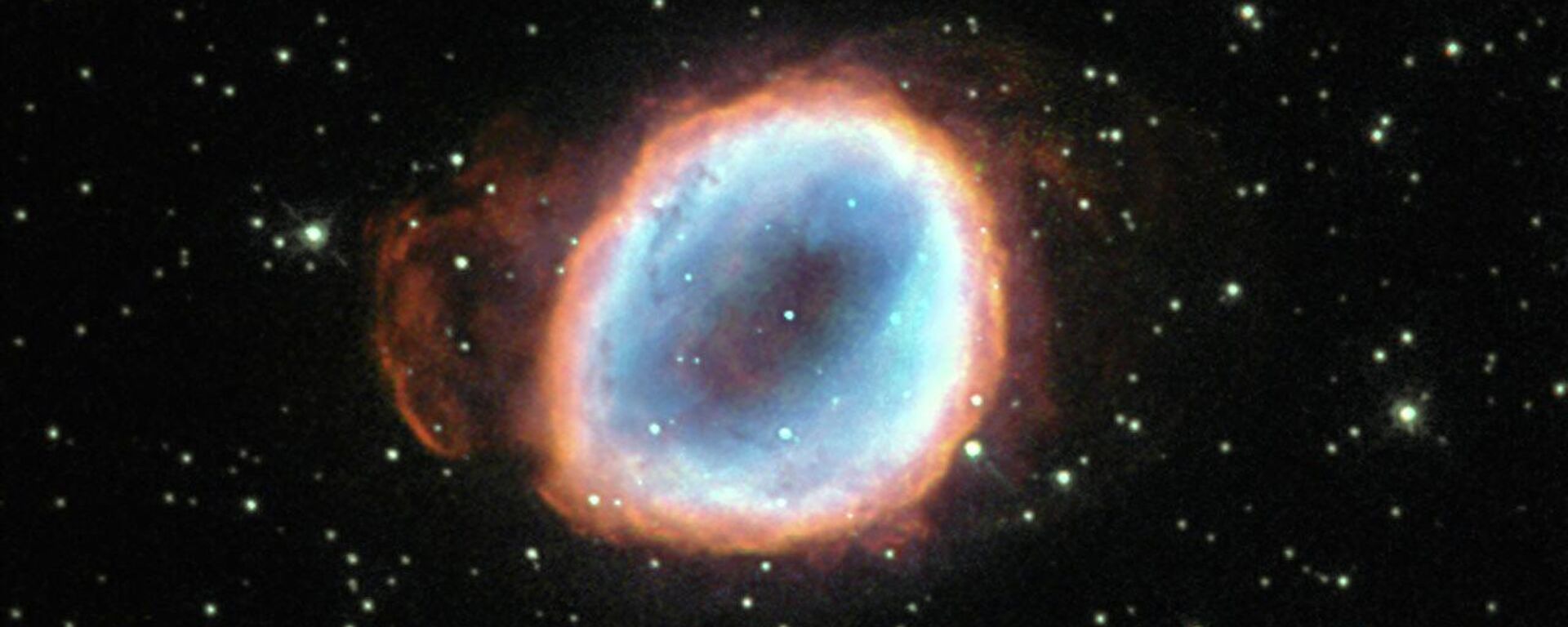https://sputnikglobe.com/20231013/revolutionizing-astronomy-ai-tool-detects-classifies--shares-its-first-ever-supernova-1114185221.html
Revolutionizing Astronomy: AI Tool Detects, Classifies & Shares Its First-Ever Supernova
Revolutionizing Astronomy: AI Tool Detects, Classifies & Shares Its First-Ever Supernova
Sputnik International
Astronomers witnessed a historic moment as the Bright Transient Survey Bot AI technology took center stage in astronomy with the successful detection, classification, and sharing of a supernova.
2023-10-13T23:23+0000
2023-10-13T23:23+0000
2023-10-13T23:19+0000
beyond politics
science & tech
northwestern university
ai
artificial intelligence (ai)
supernova
space
space exploration
https://cdn1.img.sputnikglobe.com/img/07e7/0a/02/1113861605_0:0:2048:1153_1920x0_80_0_0_0f146e3fa362cce44e4f68ef12614ee3.png
A new artificial intelligence tool called the Bright Transient Survey Bot (BTSbot) has autonomously detected, classified, and confirmed its first supernova, marking a feat that significantly accelerates the discovery and understanding of celestial beings.Traditionally, human observers worked alongside robotic telescopes to detect and analyze supernovae. These telescopes would capture images of the night sky repeatedly, searching for new sources, and when a potential supernova was identified, humans would take over, carefully verifying the candidates and executing spectroscopic observations, which are essential to confirm a supernova's existence.However, the BTSbot revolutionizes this process. The AI tool, trained using over 1.4 million historical images from various sources, including confirmed supernovae and other celestial phenomena, can autonomously detect and classify supernovae candidates. The innovative system streamlines the process, eliminating the need for human intervention.The impact of this development is twofold. Not only does it expedite the analysis and classification of supernovae, but it also reduces the margin for human error. With the AI system now online, researchers can allocate their time to other aspects of their work, accelerating the pace of discovery in the field of astronomy.In a test of the BTSbot's capabilities, it successfully identified a supernova candidate, SN2023tyk, just days after its discovery by the robotic observatory, the Zwicky Transient Facility (ZTF). The AI system then autonomously requested the supernova's spectrum from the Palomar Observatory, where another robotic telescope, the SED Machine, conducted in-depth observations. Caltech's SNIascore subsequently determined that SN2023tyk was a Type Ia supernova, and the discovery was shared with the astronomical community.The groundbreaking achievement, made possible through the collaboration of astronomers from Northwestern, Caltech, University of Minnesota, Liverpool John Moores University, and Stockholm University, promises to reshape the way we study supernovae and gain insights into the life cycles of stars and the creation of elements like carbon, iron, and gold through the cosmic explosions.
https://sputnikglobe.com/20230530/rare-lopsided-supernova-blast-kicked-dead-star-across-galaxy-1110797175.html
Sputnik International
feedback@sputniknews.com
+74956456601
MIA „Rossiya Segodnya“
2023
News
en_EN
Sputnik International
feedback@sputniknews.com
+74956456601
MIA „Rossiya Segodnya“
Sputnik International
feedback@sputniknews.com
+74956456601
MIA „Rossiya Segodnya“
bright transient survey bot, ai technologies, what is bright transient survey bot, what is btsb, how do astronomers use ai tool, ai tools in space studies, northwestern university, supernova detected by ai, supernova
bright transient survey bot, ai technologies, what is bright transient survey bot, what is btsb, how do astronomers use ai tool, ai tools in space studies, northwestern university, supernova detected by ai, supernova
Revolutionizing Astronomy: AI Tool Detects, Classifies & Shares Its First-Ever Supernova
Led by Northwestern University, an international team of scientists have witnessed a historic moment as AI technology took center stage in astronomy with a fully automated system that operates around the clock, searching for supernovae across the night sky.
A new artificial intelligence tool called the Bright Transient Survey Bot (BTSbot) has autonomously detected, classified, and confirmed its first supernova, marking a feat that significantly accelerates the discovery and understanding of celestial beings.
Traditionally, human observers worked alongside robotic telescopes to detect and analyze supernovae. These telescopes would capture images of the night sky repeatedly, searching for new sources, and when a potential supernova was identified, humans would take over, carefully verifying the candidates and executing spectroscopic observations, which are essential to confirm a supernova's existence.
However, the BTSbot revolutionizes this process.
The AI tool, trained using over 1.4 million historical images from various sources, including confirmed supernovae and other celestial phenomena, can autonomously detect and classify supernovae candidates. The innovative system streamlines the process, eliminating the need for human intervention.
The impact of this development is twofold. Not only does it expedite the analysis and classification of supernovae, but it also reduces the margin for human error. With the AI system now online, researchers can allocate their time to other aspects of their work, accelerating the pace of discovery in the field of astronomy.
"For the first time ever, a series of robots and AI algorithms has observed, then identified, then communicated with another telescope to finally confirm the discovery of a supernova... Ultimately, removing humans from the loop provides more time for the research team to analyze their observations and develop new hypotheses to explain the origin of the cosmic explosions that we observe," said Northwestern's Adam Miller, who led the work.
In a test of the BTSbot's capabilities, it successfully identified a supernova candidate, SN2023tyk, just days after its discovery by the robotic observatory, the Zwicky Transient Facility (ZTF). The AI system then autonomously requested the supernova's spectrum from the Palomar Observatory, where another robotic telescope, the SED Machine, conducted in-depth observations. Caltech's SNIascore subsequently determined that SN2023tyk was a Type Ia supernova, and the discovery was shared with the astronomical community.
"The beauty of it is that, once everything is turned on and working properly, we don't actually do anything. We go to sleep at night, and, in the morning, we see that BTSbot, and these other AIs unwaveringly do their jobs," said Nabeel Rehemtulla, co-leader of the technology development.
The groundbreaking achievement, made possible through the collaboration of astronomers from Northwestern, Caltech, University of Minnesota, Liverpool John Moores University, and Stockholm University, promises to reshape the way we study supernovae and gain insights into the life cycles of stars and the creation of elements like carbon, iron, and gold through the cosmic explosions.

![Orion Nebula in NIRCam long-wavelength [infrared] channel, imaged by James Webb Space Telescope (JWST) Orion Nebula in NIRCam long-wavelength [infrared] channel, imaged by James Webb Space Telescope (JWST) - Sputnik International, 1920, 13.10.2023](https://cdn1.img.sputnikglobe.com/img/07e7/0a/02/1113861605_0:0:2048:1153_1920x0_80_0_0_0f146e3fa362cce44e4f68ef12614ee3.png)

